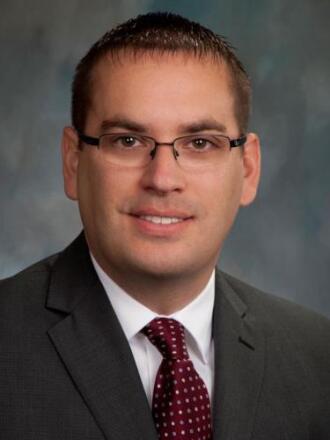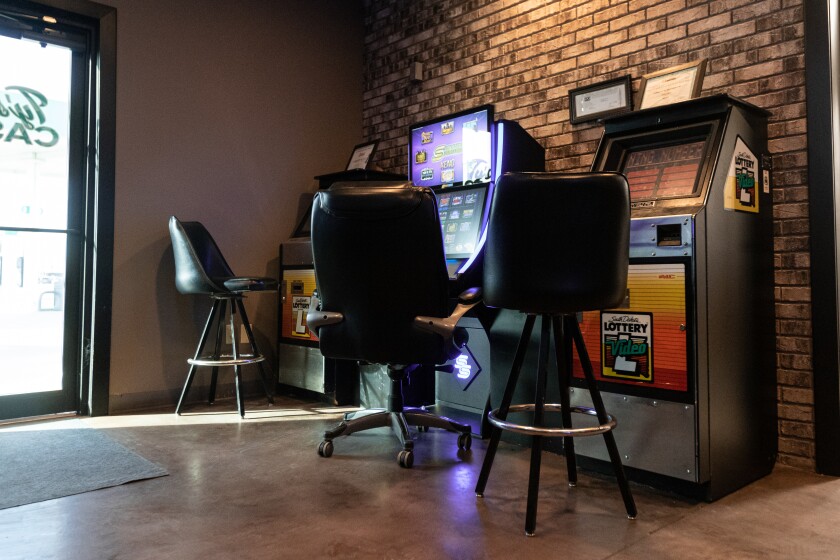SIOUX FALLS, S.D. — Gamblers in Minnehaha and Lincoln counties are responsible for nearly one-third of the total money spent on video lottery in South Dakota.
It’s a big number: $485,469,515 from the beginning of 2017 through Nov. 28.
Half that money went into state coffers, which is why any change in how Sioux Falls regulates video lottery attracts attention.
The Sioux Falls City Council approved a new cap on the number of beer and wine licenses in November. In the background of the debate was the South Dakota Supreme Court decision in 2011 that shot down a city ordinance banning video lottery within 2,000 feet of parks and schools.
That decision solidified the state’s authority to regulate video lottery, making it more difficult for individual cities to venture outside the bounds. In the wake of that debate, the city council retreated from the field. But a steady expansion of outlets in recent years refocused attention on video lottery by councilors Greg Neitzert and Rich Merkouris, who championed the cap.
ADVERTISEMENT
The council also approved a stipulation that any given outlet can have no more than 30 machines. Several casinos have expanded to 40, with at least one at 50, by linking multiple gaming rooms together under one roof.
The question is whether the council’s cap would again be challenged in court.
Other South Dakota cities — Rapid City, Aberdeen, Yankton — have taken the step already.
But they aren’t Sioux Falls.
Top 10 Counties
South Dakota counties ranked by video lottery revenue in 2022 as of Nov. 28. (Source: South Dakota Lottery)
“I don't know that Sioux Falls gets treated differently but I do think restrictions we place may get extra scrutiny because of the potential revenue implications for the state,” said Neitzert.

As of Nov. 28, Minnehaha and Lincoln counties have contributed 31% of this year’s video lottery revenue, according to the South Dakota Lottery.
ADVERTISEMENT
Pennington County, home to Rapid City, chipped in 13%.
Brown County, which includes Aberdeen, is less than 6% of the total.
Those proportions don’t fluctuate much from year to year, even though total revenue from the machines increased by 51% over the previous five years.
The state’s overall cut of the proceeds topped $163 million in 2021, up from $108 million in 2017.
ADVERTISEMENT
So far this year, that number is more than $149 million.

Sioux Falls lawyer Drew Duncan represents Commonwealth Gaming, one of the major players in the video lottery industry in the city.
Duncan has made several appearances before the City Council on behalf of his client, as well as offering insight into the broader debate.
It’s difficult to predict whether there will be any challenge to the license caps in the state but the stakes are certainly higher when it comes to Sioux Falls. That said, there’s an overall inertia regarding video lottery that curbs any expansion or new restrictions.
“I can tell you that there hasn’t been a ton of appetite on any side — regulators, legislators or operators — to upset the apple cart in any way,” he said.
Whether someone takes the issue to court is less certain.
“A challenge could come from anywhere,” Duncan said. “It would probably come from someone who is looking to break into the industry or looking to grow, one of the newer players.”
Neitzert said it’s possible the issue could again end up in court, but that it’s less likely because Sioux Falls isn’t alone. Plus, there’s also a benefit for people already holding licenses because they won’t be as easy to get.
ADVERTISEMENT
“While it restricts the major operators it does create a quasi-monopoly and asset for the existing operators,” he said. “The fact that many other cities have similar laws that haven't been challenged gives us some safe harbor as well, but there are never guarantees.”














